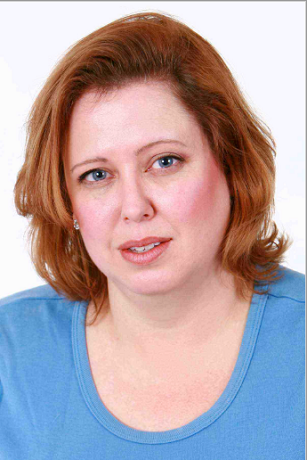
Laura: I read it first in a really fantastic anthology called Leading Women: Plays for Actresses 2. Incidentally, that’s also where I first read our recent play, Collected Stories. Even reading Anton, I laughed out loud, and I immediately started using one of the speeches as an audition monologue. The author and all the characters seem to know deep in their hearts that theater is a bad bet as a profession, (especially for an actress), but they just all love it so much, they can’t help but hope for a happy ending. Variety’s review had a perfect description: “Simultaneously a love letter and a poison pen letter to the American theatre.”
Q. I was recently asked by someone why American actors and directors love Chekhov so much. What’s your answer to that question? What’s your own relationship to Chekhov like?
Laura: Well, I think Chekhov was significant when he wrote because it was truly something new–they were tragicomedies, and they are about ordinary people but used beautiful language. But most of all, his characters were subtle and psychologically complex, calling for nuanced, naturalistic performances (and this was a time when the Russian acting style was quite overblown and stylized–Stanislavski’s acting method was a reaction to that).
But why do American theaters love him so much? Seattle Times critic Misha Berson wrote a very insightful opinion piece on just that question: “We have more than enough fairy tales of wish-fulfillment and revenge. What Chekhov presents to us, tenderly and harshly, is truth. The hilarious, absurd, thorny truth about human nature, in all its infectious joy and self-sabotaging blindness.” In a nation of striving moralists espousing self determination and hard work, maybe we Americans sometimes need to admit that Walt Disney is wrong, and not all dreams come true.
I fear this will out me as a cretin, but I do not love Chekhov. I’m guilty of being a bit of an Anglophile in my literary favorites (adding American playwrights to British Isles.) Maybe they are translation issues. Many of us had a field trip to DePaul University Theater to see a lovely production of Three Sisters last month, and there were definitely moments that genuinely moved me. But, in general, give me Wilde or Shaw for wit and social commentary, and Williams or Inge for tales of longing and loss.
Q. We’ve only ever dealt with the lighter side of Chekhov’s work–in our first season, Corinna directed The Bear, and then years later Bill directed Neil Simon’s adaptation of Chekhov’s short stories, The Good Doctor. Three Sisters has its comic moments, but it’s not the same kind of comedy. What do you think Three Sisters means to the actresses at the heart of this play? Why do they think it’s so important to find a way to put this on, despite all the hilarious obstacles and setbacks?
Laura: Well, director #1 in our play, Ralph, thinks 3 Sisters is “funny, funny, funny, tragic.” Three Sisters means different things to the different characters– and not just the actresses (for instance, the hilarious costume designer totally gets it.) Holly, the starlet, doesn’t really care about Chekhov. She just wants to show she’s a legit actress by doing classical theater. I think she wants to make the show happen to prove herself, but also because she’s really become attached to her “sisters.” Casey and Lisabette have deeper connections to the play, and to theater in general. And their dynamic has its own little tragedy: while it’s a beginning for Lisabette, it might be a last shot at making a living as an actress for Casey.
Q. So this is a comedy about Chekhov, but it’s also a comedy about theater. What is it about theater that you think Martin gets to the heart of in this play?
Q. Cross-gender casting has long been a fact of life at the HPCP, but this is the first show we’ve done where the author insists that all roles, including the male ones, have to be played by women. Why do you think Martin made that a requirement? What would be different about this show if she hadn’t?
Q. Is there anything else you want the audience to know about Anton in Show Business?
Laura: Mainly that it’s really funny. I’ve talked here about all the serious underpinnings, but the truth is, you don’t need to experience it that way. These women are just hilarious characters. So please, come laugh with us. Also, in the spirit of this very “meta” play we have another layer of self-referential theater jokes: see if you can find the references to our Hyde Park Community Players’ past productions!
Laura MacGregor with Susan Harris
Leave a Reply